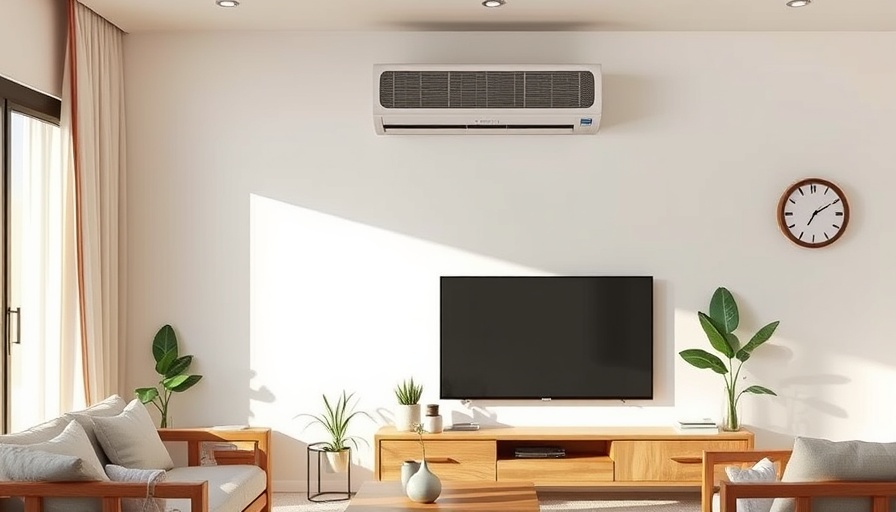
The Shift in HVAC Refrigerant: Why It Matters
As homeowners, property managers, and small business owners pivot towards more sustainable practices, the shift in refrigerants used in heating, ventilation, and air conditioning (HVAC) systems is critical. With growing environmental awareness, new regulations are being introduced to phase out hydrofluorocarbons (HFCs), which have been widely used due to their effectiveness but have significant impacts on global warming. This transition demands that property owners understand the implications and make informed decisions regarding their HVAC systems.
Understanding the New Refrigerants
The replacement for HFCs often involves more eco-friendly options like hydrofluoroolefins (HFOs) and natural refrigerants such as propane and ammonia. These alternatives can minimize the environmental impact, but they also require that HVAC technicians be properly trained to handle them due to differences in handling and system compatibility. Building owners should inquire whether their HVAC systems can be retrofitted or need complete replacement to accommodate these changes.
Ensuring Compliance with New Regulations
Staying compliant with HVAC regulations is essential for both safety and efficiency. Knowing what the new standards mean for your HVAC systems can help ensure that you remain on the right side of the law. Local governments may offer resources to help navigate these regulations, and professionals can assist in implementing compliant systems that maintain efficiency without damaging the environment.
Cost Considerations for Homeowners and Businesses
Many wonder, how much does HVAC installation cost? With modern systems, while the initial investment may seem significant, energy-efficient models often result in reducing energy bills over time. This ensures that property owners enjoy savings long after installation. It's crucial to consider available rebates on air conditioners or HVAC upgrades from local energy providers, which can alleviate initial costs.
Best Practices for Transitioning to New HVAC Systems
As property owners consider what are the best HVAC systems on the market, it’s crucial to choose systems that not only comply with new regulations but also fit their specific needs. Brands like Lennox have gained a reputation for quality—asking are Lennox HVAC systems good can yield positive feedback from satisfied customers.
Actionable Tips for Efficient HVAC Maintenance
A proactive approach to HVAC maintenance ensures longevity and efficiency. Regular maintenance can significantly reduce unexpected costs and extend equipment life. Knowing how long does HVAC maintenance take should help homeowners plan and prioritize they air conditioning upkeep. Basic tasks can often be accomplished by property managers themselves, while more complex maintenance should be addressed by certified professionals.
Conclusion
Transitioning to new refrigerants and upgrading HVAC systems is no longer just a choice but a necessity for environmentally-conscious homeowners and businesses. By staying informed, leveraging available resources, and ensuring compliance with regulations, property managers can make impactful decisions that save money and support sustainability efforts.
If you're considering upgrading your HVAC system or simply want to learn about available rebates and efficient practices, don’t hesitate to reach out for expert advice. The future of HVAC not only saves energy but supports a healthier planet.
 Add Row
Add Row  Add
Add 




Write A Comment